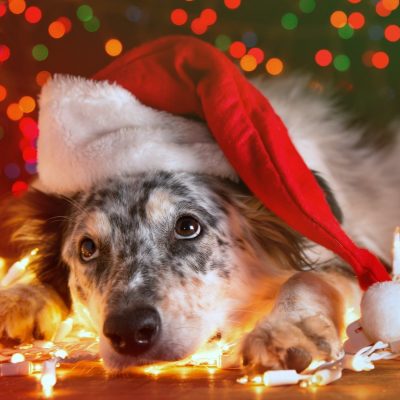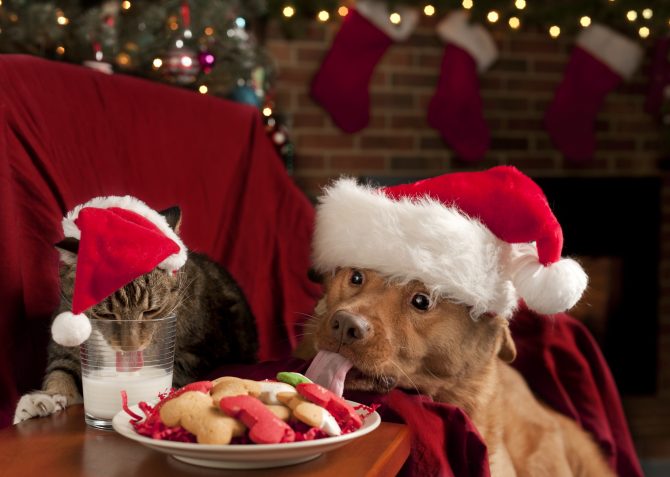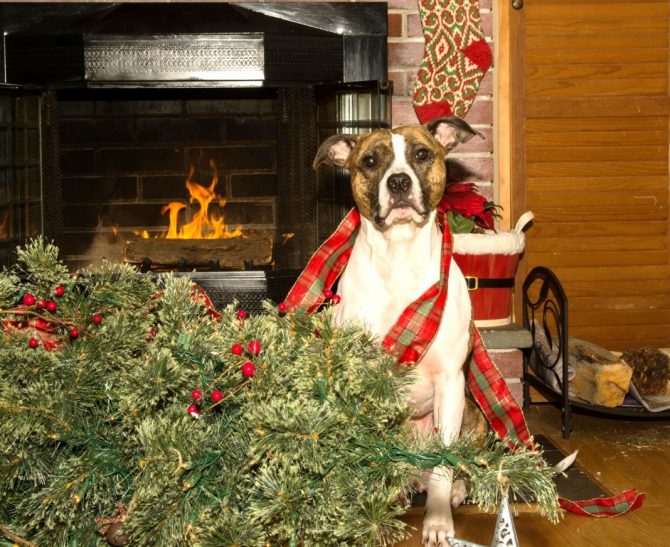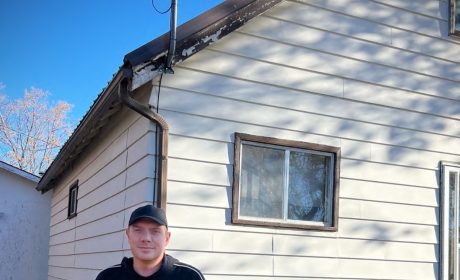Keeping pets safe during the Holidays


In September 2022 Xplornet became Xplore. Read more here.
Xplornet | December 14, 2018
We all look forward to the holidays and spending time with friends and family; however, the festive season can also be a stressful time for many pet parents and their fur babies. There are many hidden dangers that could result in sickness or harm, so being aware of the risks is first step in keeping your pets safe. Here are some helpful tips to keep your pets healthy, happy and safe this year:
FOOD
With all the holiday food and treats around, it’s easy for pets to eat things that could make them ill. Here are some high-risk items to keep away from your pets – especially dogs:
- Chocolate – Depending on the dose ingested, chocolate can cause vomiting, diarrhea, seizures, hyperactivity, increased thirst and urination, and an increased heart rate.
- Other sweets and baked goods can also be dangerous to dogs and other pets. Not only are they often too rich for pets; an artificial sweetener often found in baked goods, candy and chewing gum, xylitol, has been linked to liver failure and death in dogs.
- Fatty Foods like turkey skin – can sometimes cause a life-threatening condition in pets known as pancreatitis.
- Table scraps – many foods that are healthy for people are poisonous to pets, including onions, raisins and grapes.

Pets can get into food or drinks that could make them sick or seriously ill.
DECORATING
Greenery, lights and Christmas trees can make the holidays festive, but they also pose risky temptations for our pets.
- Christmas trees can tip over if pets climb on them or try to play with the lights and ornaments. Consider tying your tree to the ceiling or a doorframe using fishing line to secure it.
- Ornaments, Tinsel & Holiday Décor can cause hazards for pets. Broken ornaments can cause injuries, and ingested ornaments can cause intestinal blockage or even toxicity. Keep any homemade ornaments, particularly those made from salt-dough or other food-based materials, out of reach of pets.
- Flowers and festive plants can result in an emergency veterinary visit if your pet gets hold of them. Amaryllis, mistletoe, balsam, pine, cedar, and holly are among the common holiday plants that can be dangerous and even poisonous to pets who decide to eat them. Poinsettias can be troublesome as well.
- Candles are attractive to pets as well as people. Pets may burn themselves or cause a fire if they knock candles over. Be sure to use appropriate candle holders, placed on a stable surface. And if you leave the room, put the candle out!

Boxer takes down Christmas Tree
ENVIRONMENT
- A Quiet & Private Space can really help shy or overstimulated dogs and cats deal with the hustle and bustle of visiting friends and family.
- Medications can be left by your guests in easy to access locations like suitcases or night side tables. Make sure you advise visitors to ensure their meds are zipped up and store in a safe location.
- Beware of Wildlife coming closer to your home and possibly attacking your pets as coyotes, foxes and raccoons get more desperate for food during the winter season.
HAVING A PLAN
Finally, it’s important to have backup plan in case something does happen. Consider the following questions:
- Do you know if your vet is available during the holiday season?
- Do they have reduced hours or availability?
- Is there an after hour clinic or vet?
Also consider googling resources to create your own dog or cat first aid kit. There are many at home remedies that could help if your pet gets ill during the holidays when veterinarians may not be available.
By taking some precautions and planning in advance, you can help keep your pets happy and healthy throughout this holiday season.


